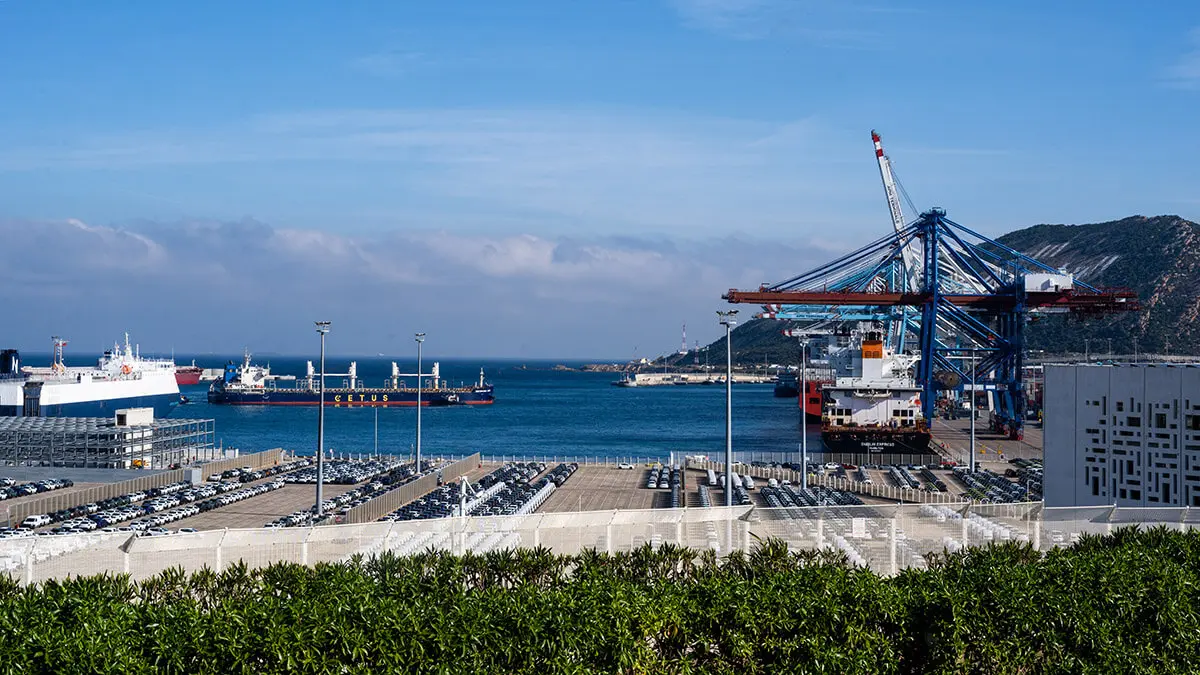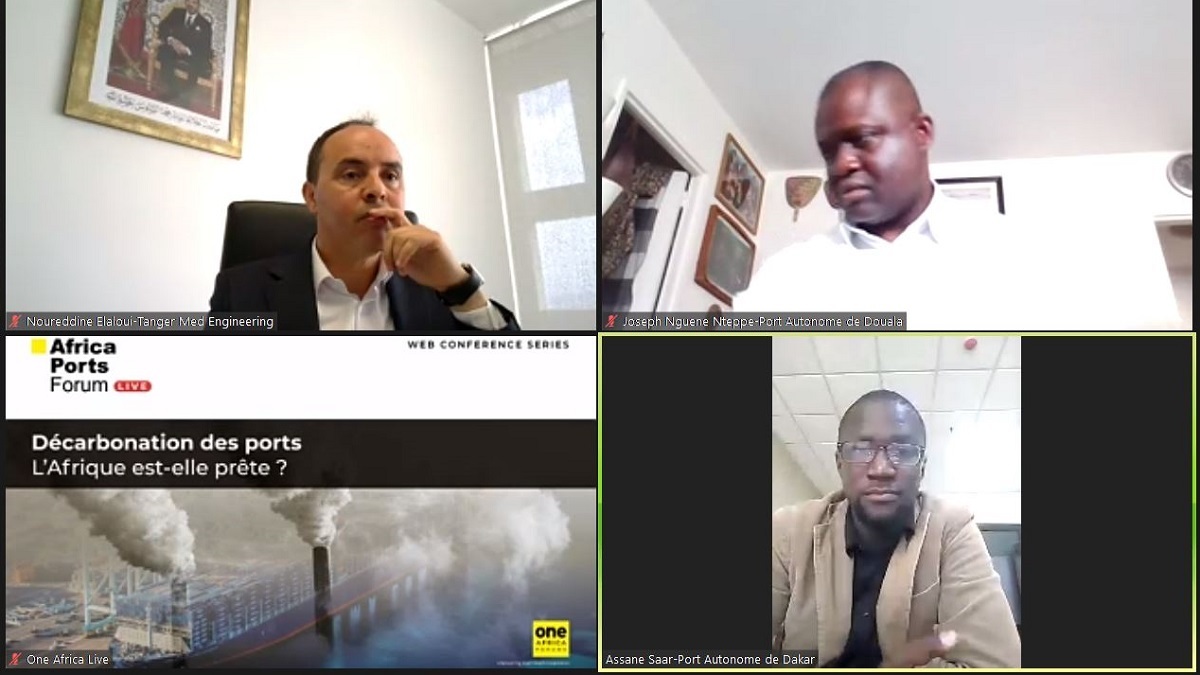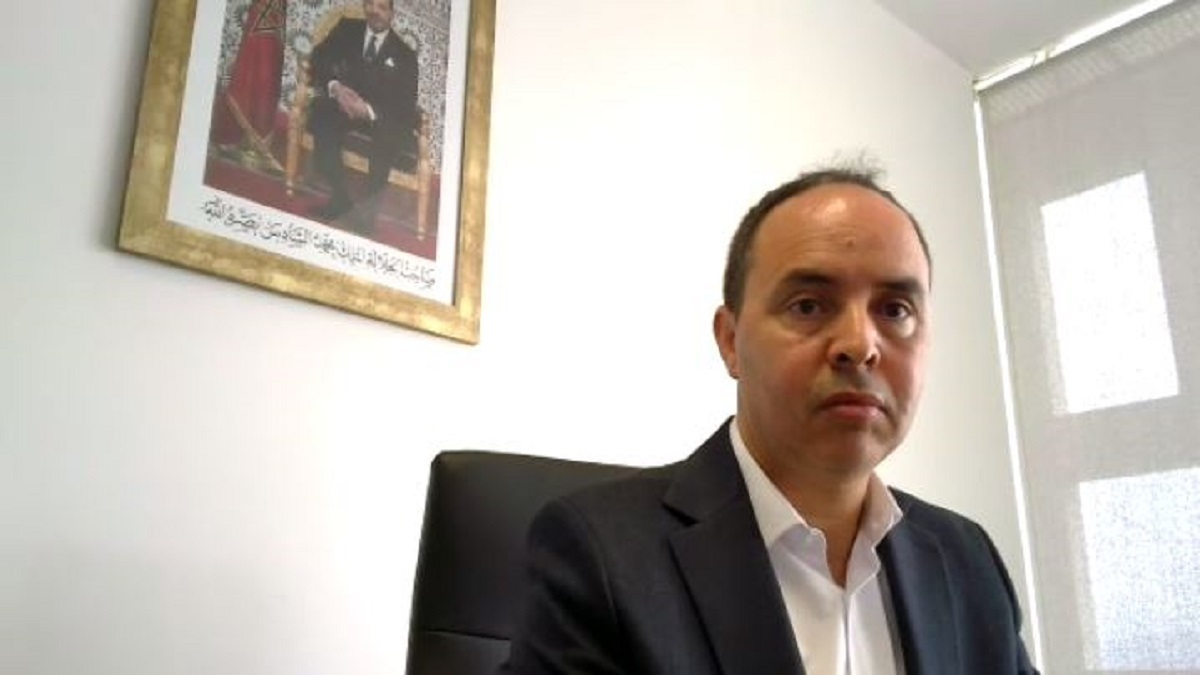Is Africa ready to decarbonise its ports?

Africa is facing an opportunity for growth. The work they have been doing for years to take a step forward in energy matters is now facing a great challenge as far as the ports are concerned. Decarbonisation is one of the most important challenges in all fields, and the ports are no exception. For this reason, the One Africa Forum organised a conference entitled "Decarbonisation of the ports. Is Africa ready?" moderated by N'Guessan Alexis, professor and senior researcher at CREMPOL, in which some experts shared their vision of this objective.
Morocco, at the forefront of port development
If there was one thing all the participants had in common, it was their belief in Morocco as the spearhead of this decarbonising project. Noureddine El Aloui, Director of Energy, Water, Environment and Connectivity of the Port of Tangier Med assured that this idea, although ambitious and with a long-term view, "is already underway and under development". He also referred to some of the resources which can be used to achieve its objectives, such as methanol.

Joseph Nguene Nteppe, Director of Analysis, Forecasting and Cooperation at the Autonomous Port of Douala, agreed with El Aloui, and believes that the continent is ready to achieve decarbonisation. However, he says, "we must be prepared for this process and make developed macroeconomic, legal policies and gather the necessary means to do it effectively".
Energy transition as a key pillar
Some of the participants in the event, such as Assane Saar, QHSE Project Manager, Quality, Safety, Health and Environment Unit of the Dakar Port Authority, emphasised the problem of air pollution. To this end, he considers that the countries must actively collaborate with the ports to meet this challenge. In fact, Saar proposes "to carry out a plan of action against gases which will enable the emissions of polluting gases to be reduced".

The idea of joining forces between the regional governments and the port authorities is fundamental to achieve such a complex objective as port decarbonisation. Akanni Ediko Richard, Head of Corporate Responsibility and Environment of the Autonomous port of Cotonou speaks of "convincing the participants to join forces and to implement good practice" to achieve the proposed goals.
However, there are still many barriers to achieving the total substitution of fossil fuels by renewable energies. The price difference between the two is one of the factors hindering substitution, as many administrations are reluctant to switch to renewables if the change means an increase in costs. For this reason, some are proposing to increase taxes as a measure that favours cost competitiveness between the two types of energy.








